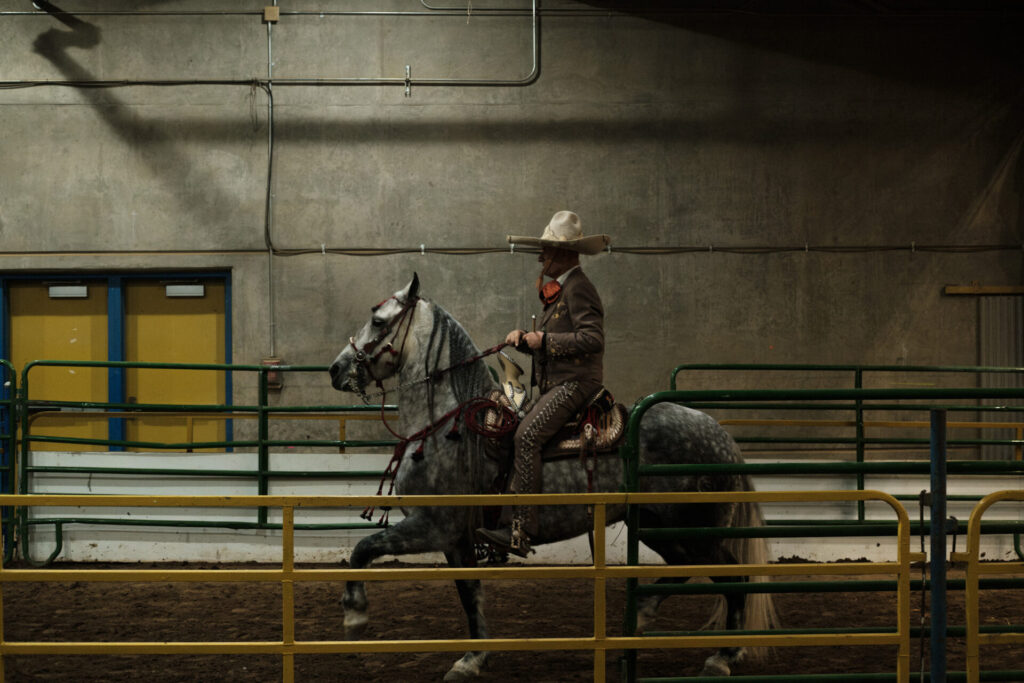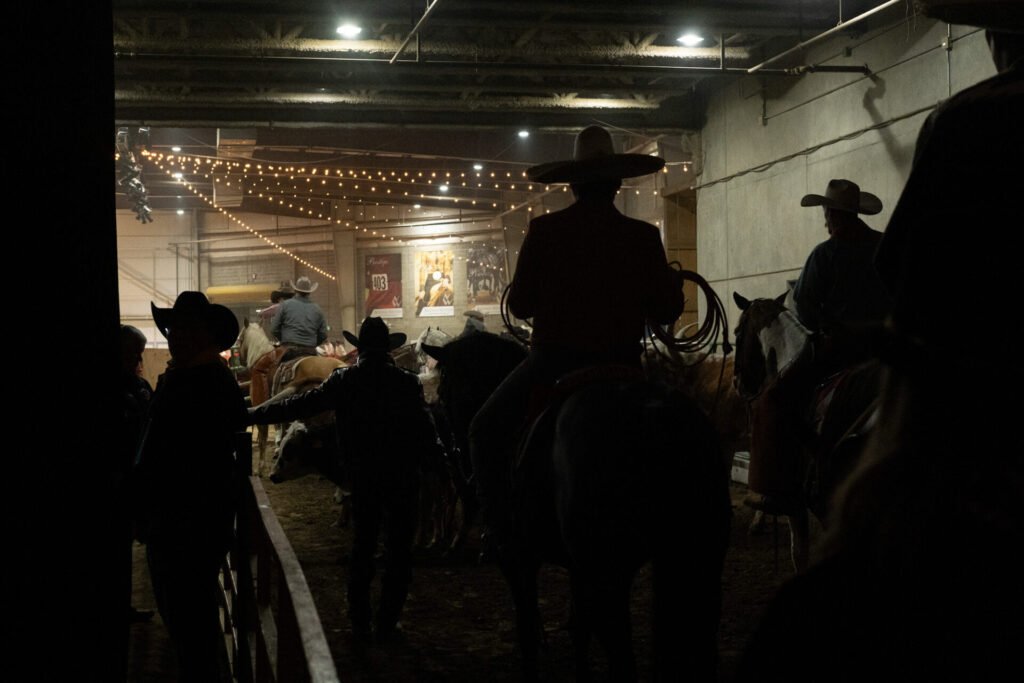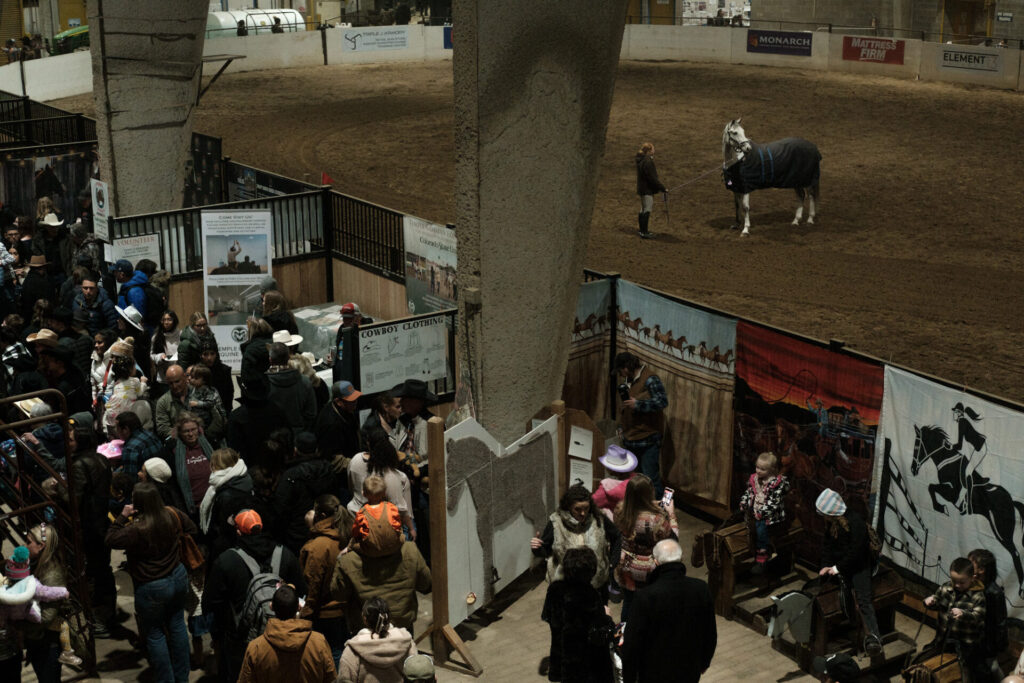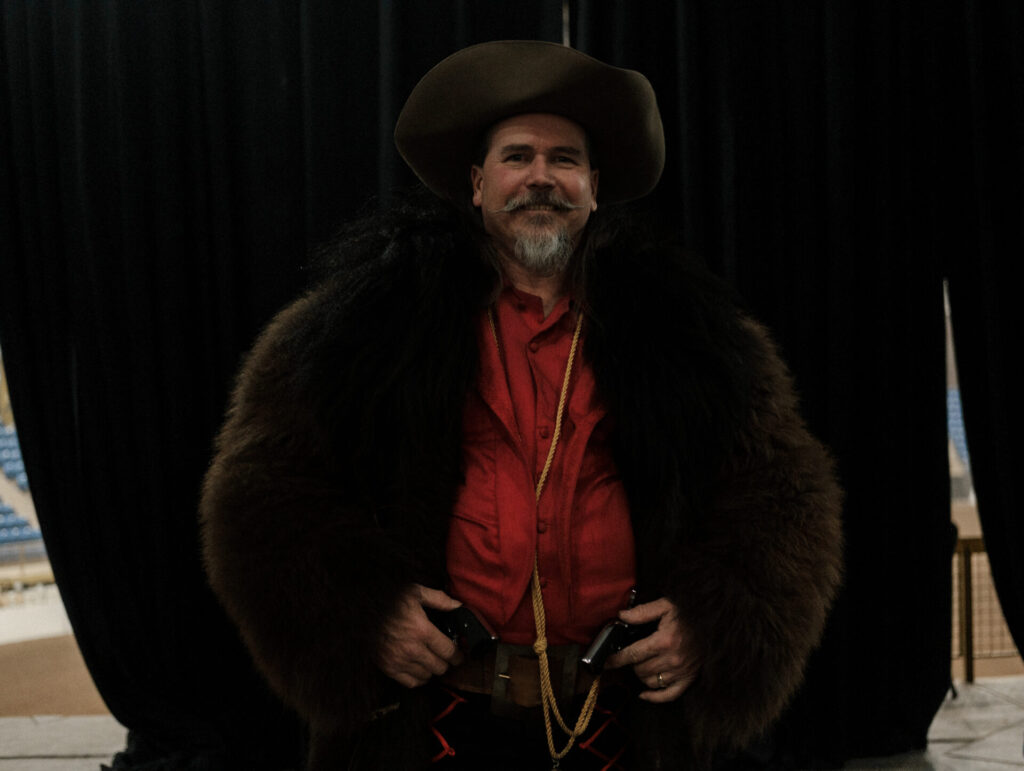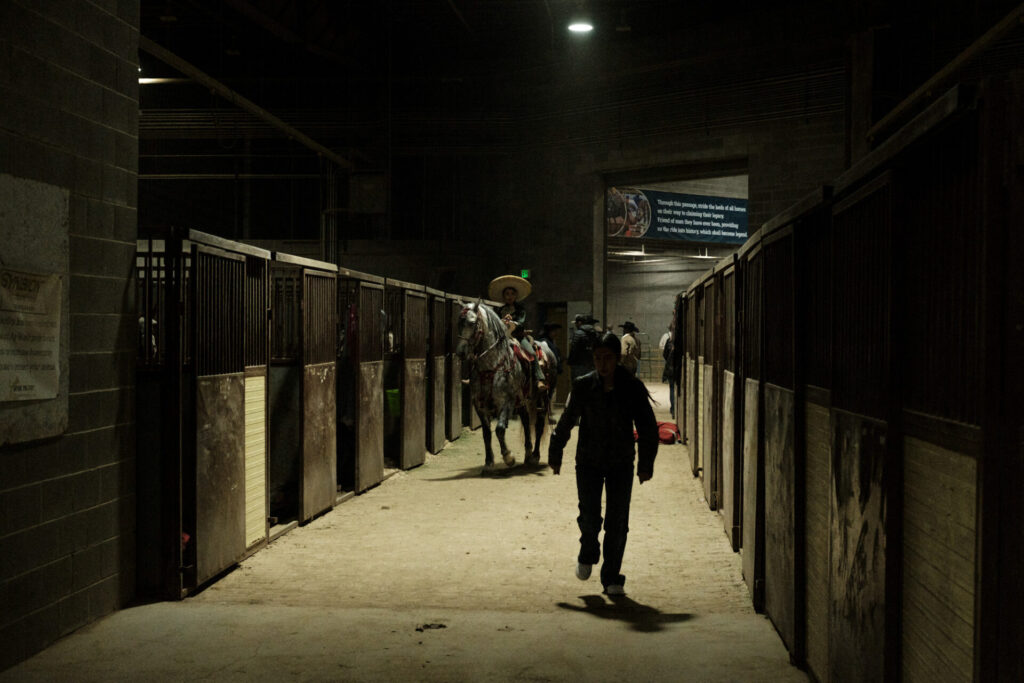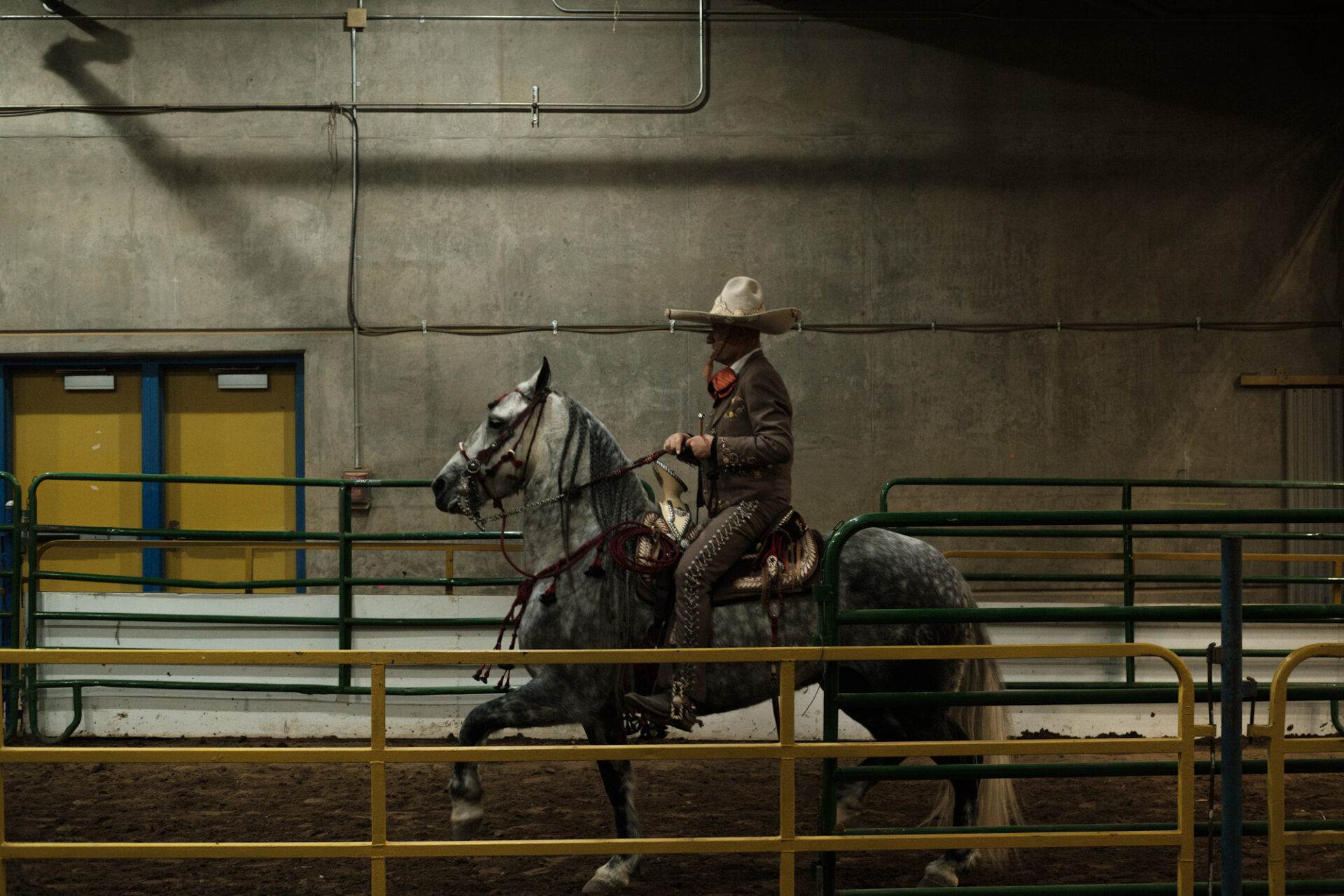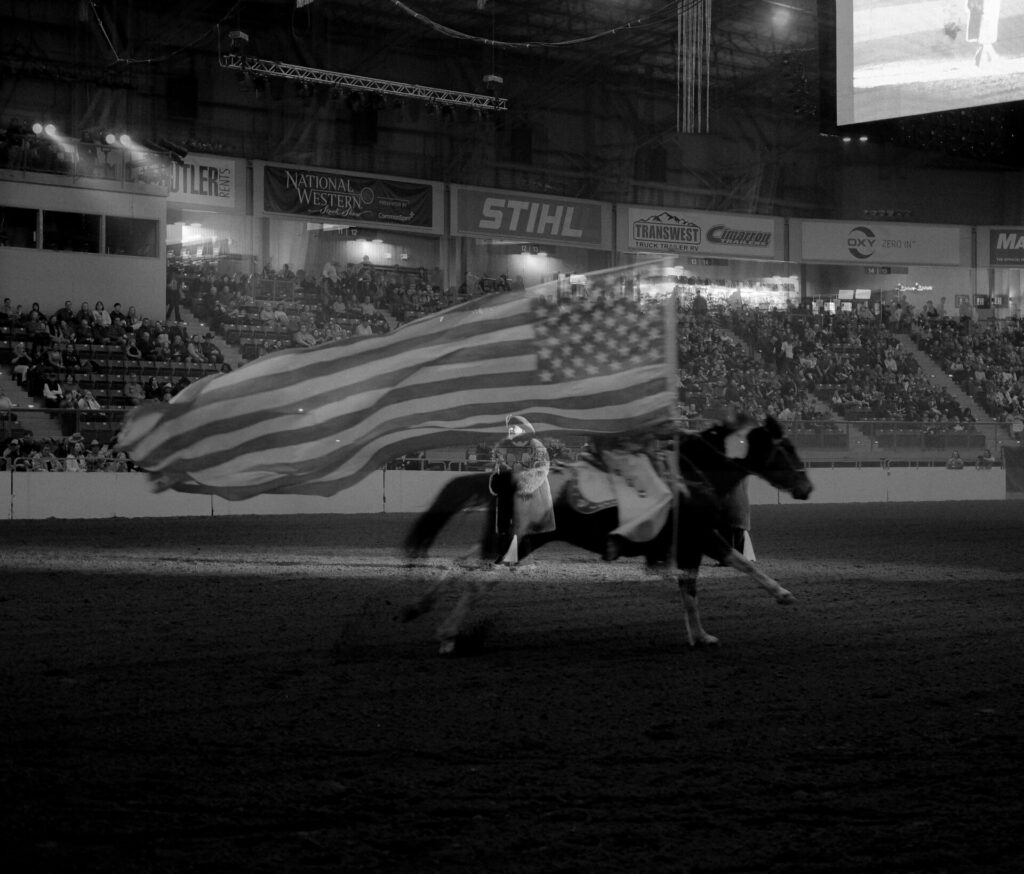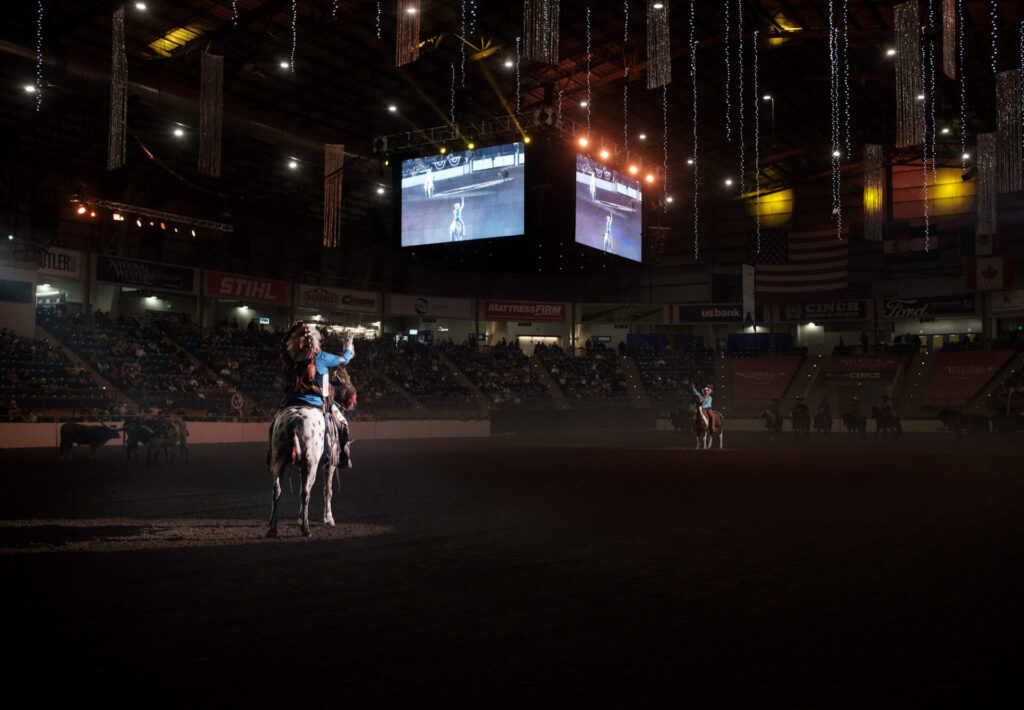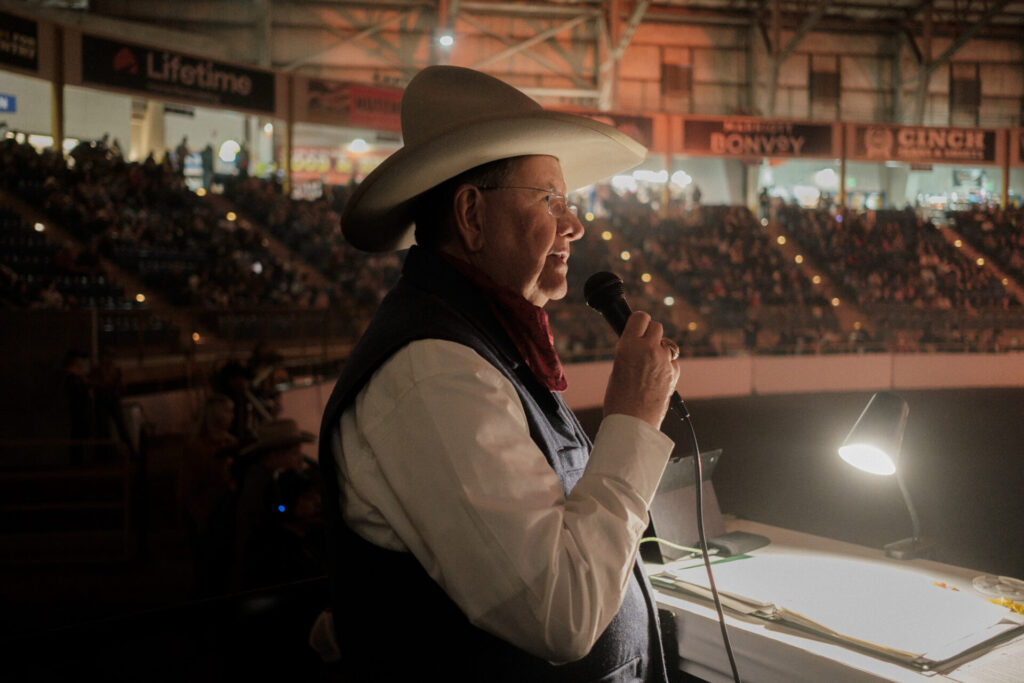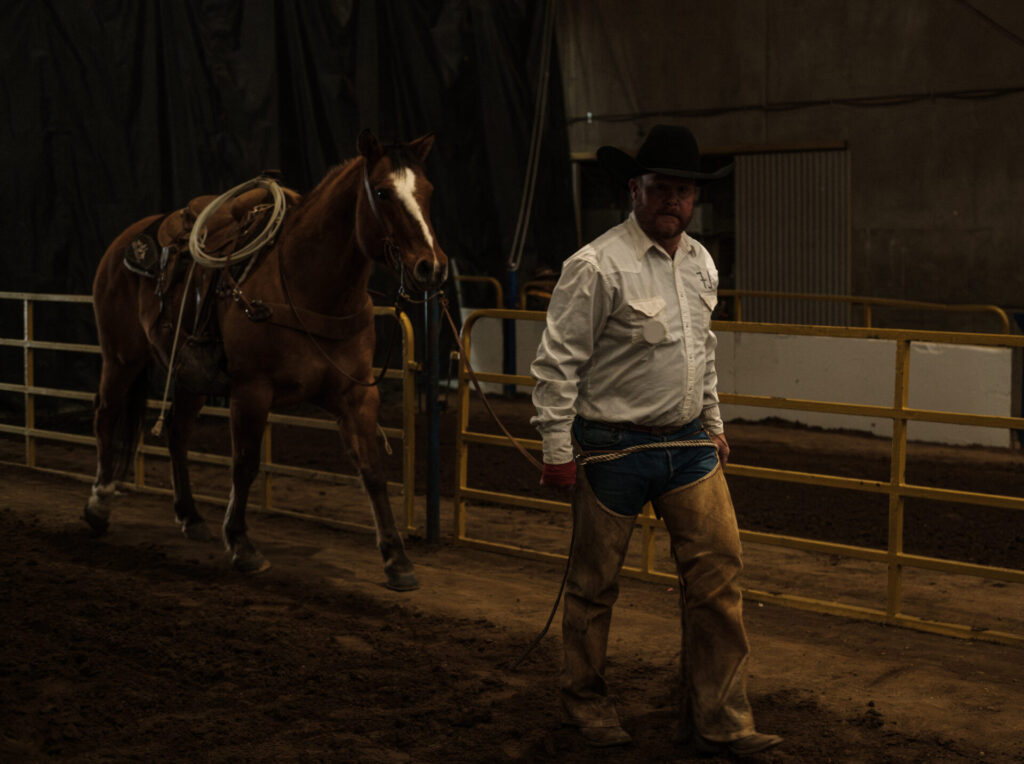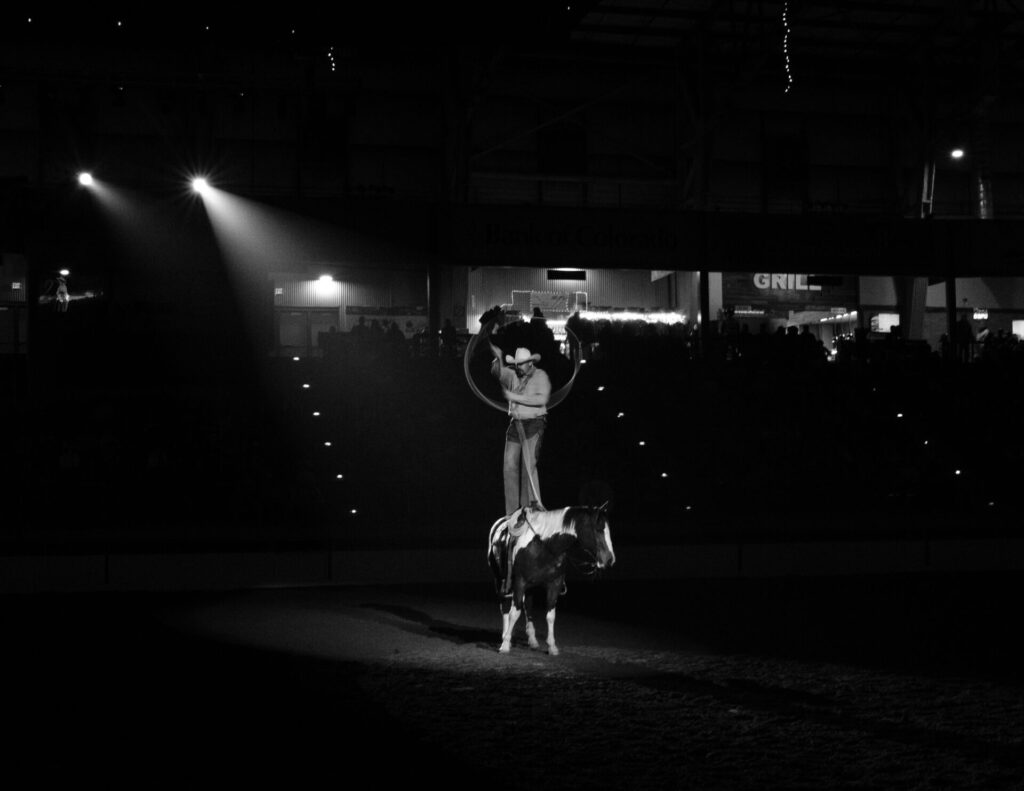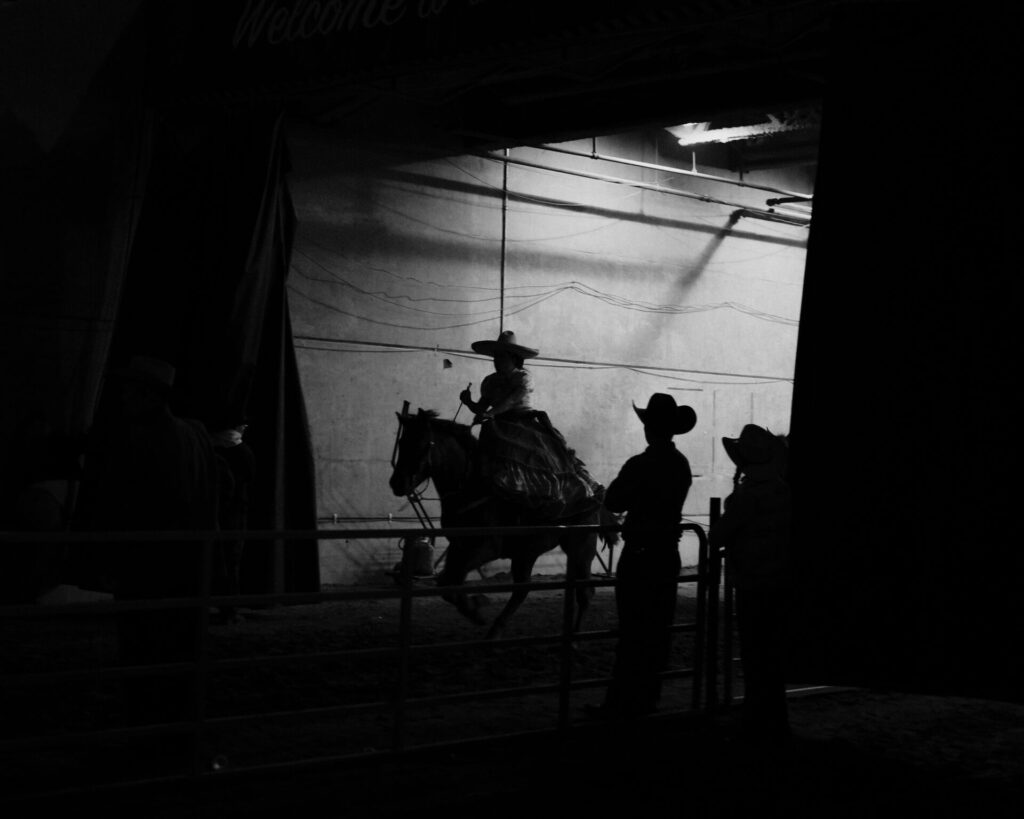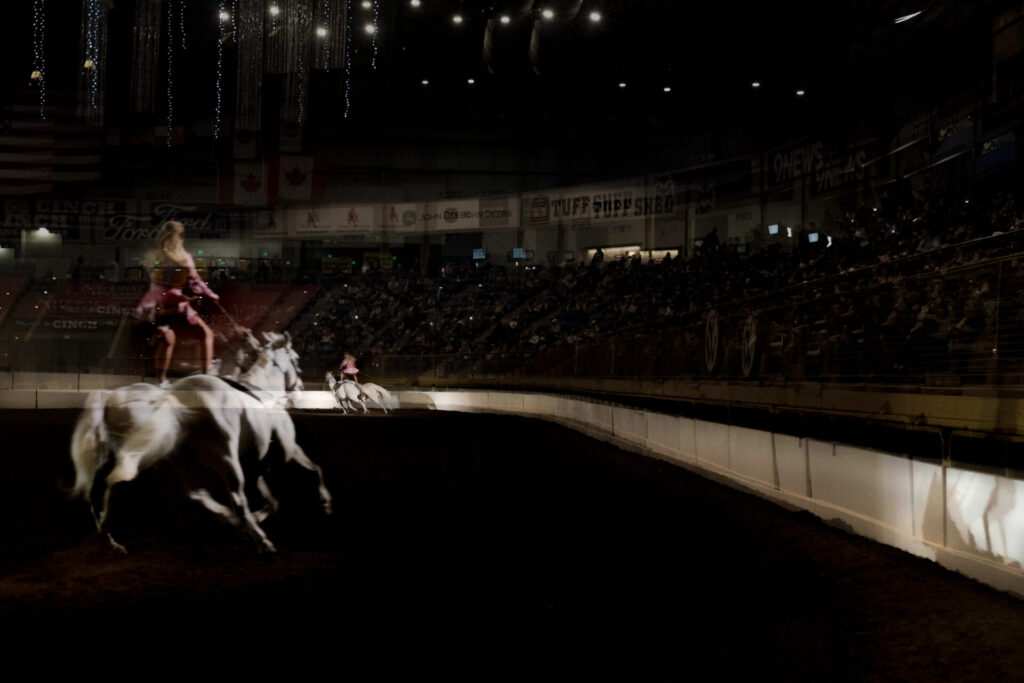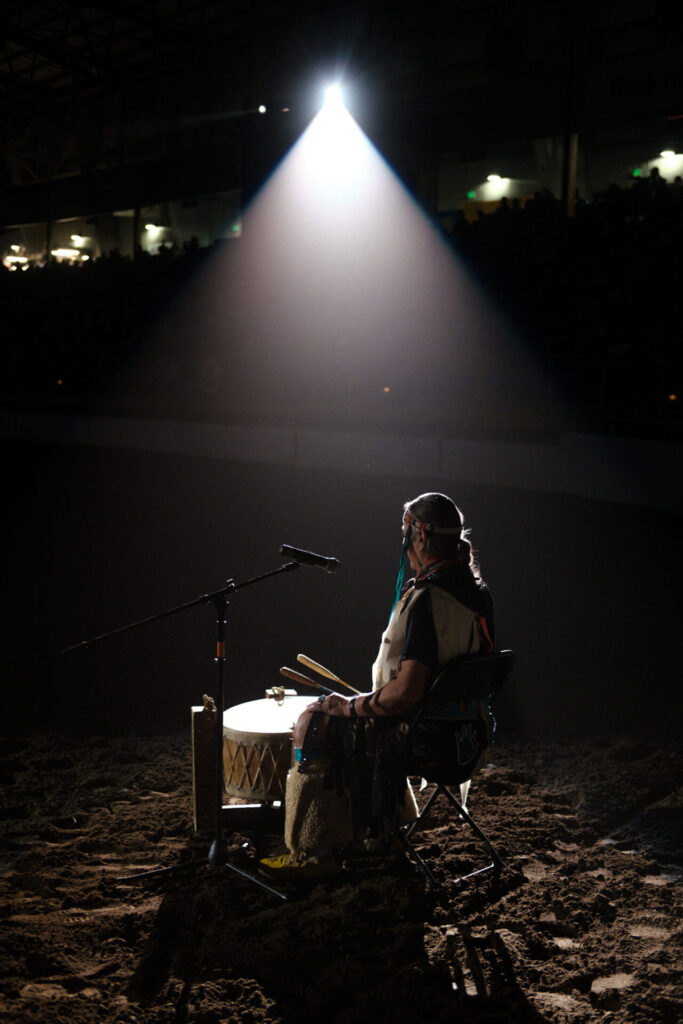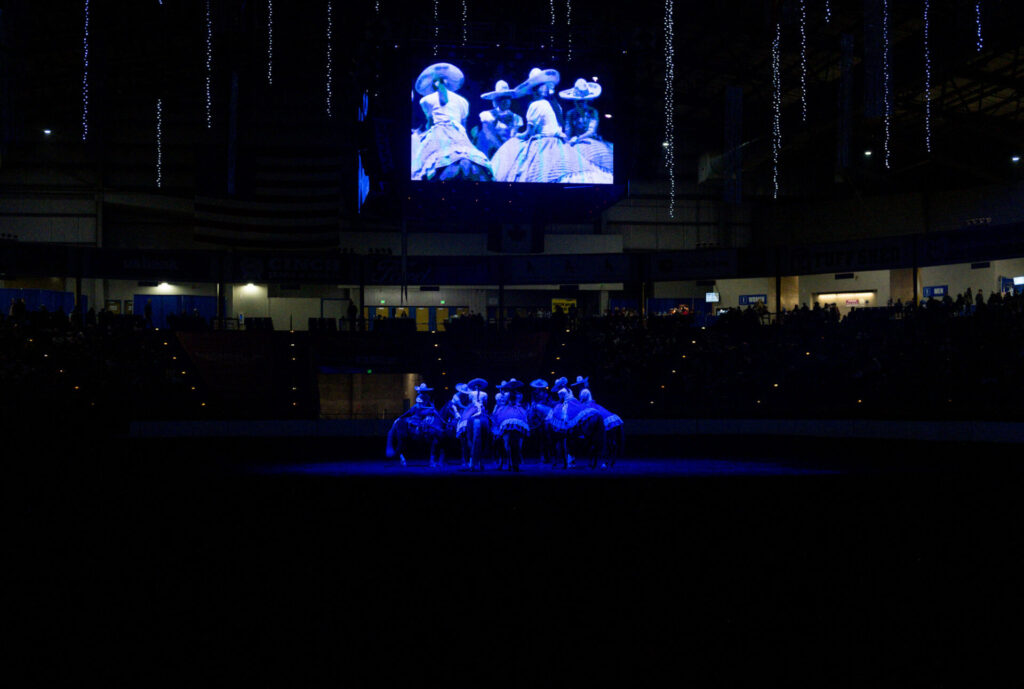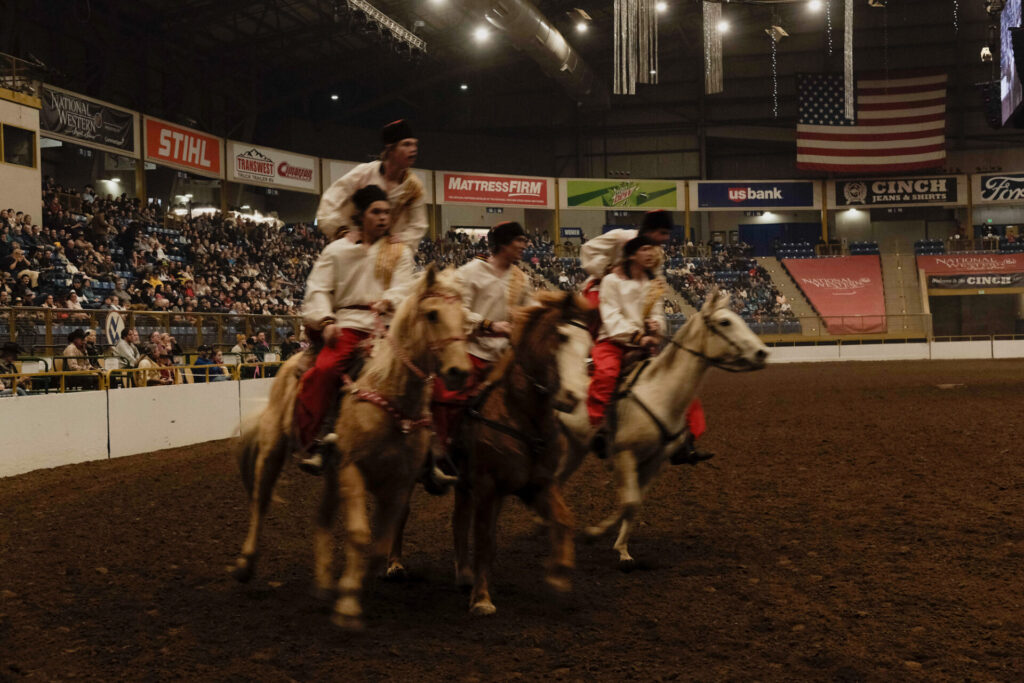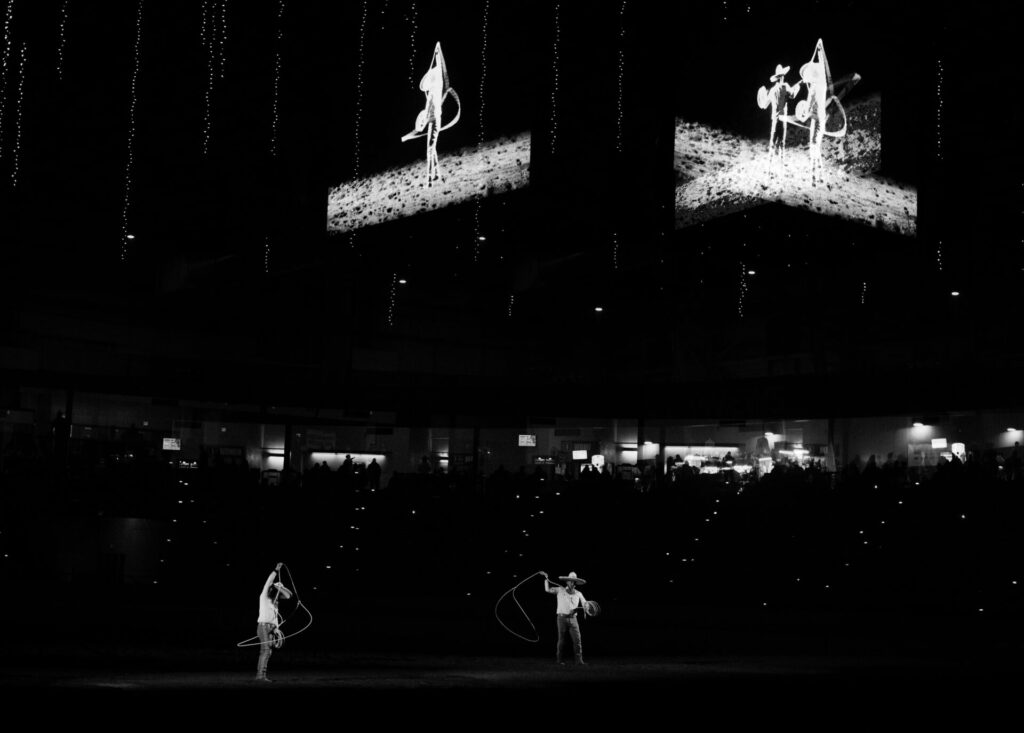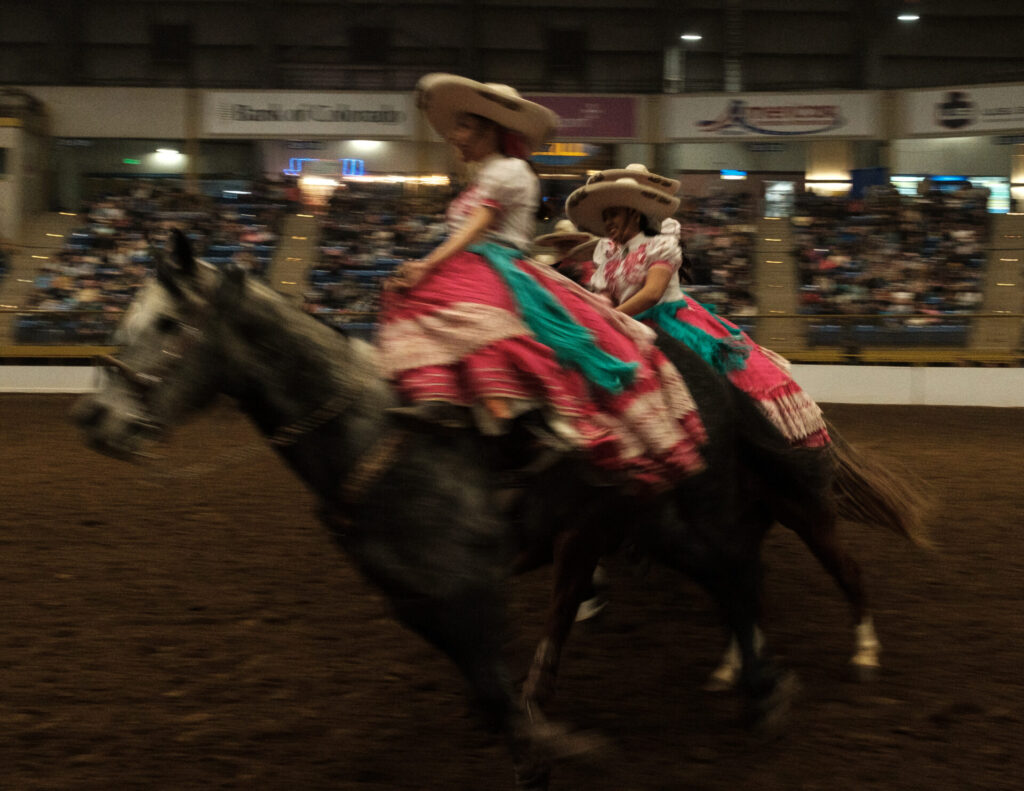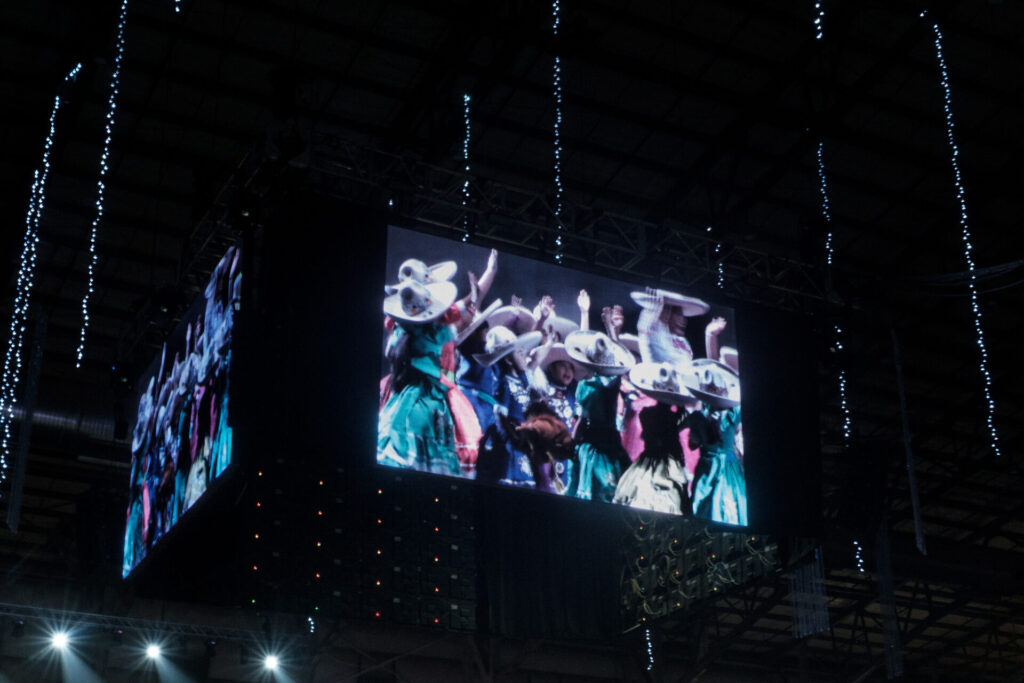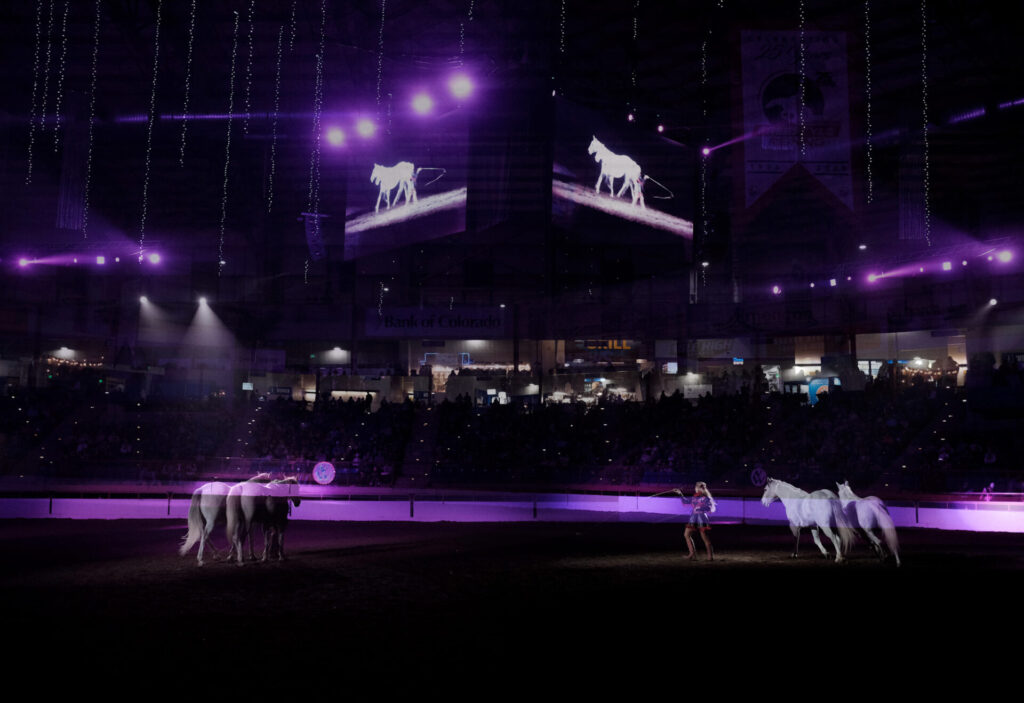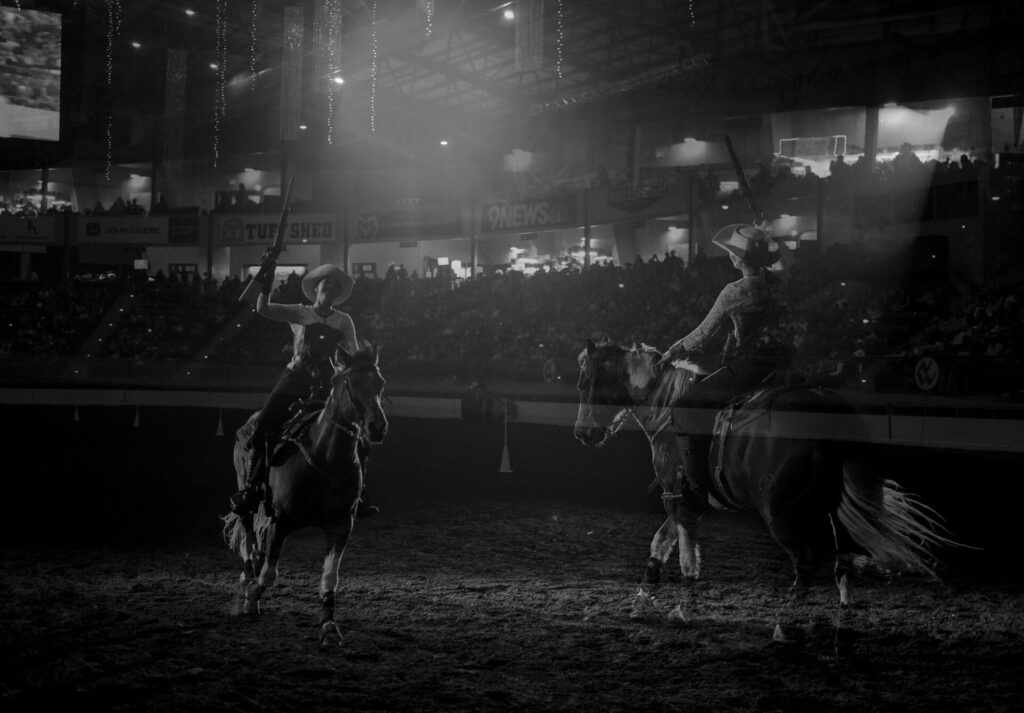Story and photos by Payton Cordova
Listen to Jason Baker, “Buffalo Bill,” here!
In 1893, American Historian Frederick J. Turner said that “the frontier has gone, and with its going has closed the first period of American history.” The long campaign for Western occupation now stretched to the Pacific, but the cultural echoes of the Old West were just beginning to reverberate. A mile from the room where Turner first shared his “Frontier Thesis”, Colonel William F. “Buffalo Bill” Cody saw an opportunity. Cody pioneered many of the classic tropes of the Western genre, drawing on his experiences as a soldier and stagecoach driver on the frontier to bring the lives of western expansionists to the world stage. 132 years later, the perspective of “Buffalo Bill’s Wild West” lives on in the American tradition. At Denver’s National Western Stock Show (NWSS), this tradition is a staple of identity.
Wild West Shows have been a prominent fixture of the NWSS since the convention’s beginning in 1906. Actors portraying folk representations of “Buffalo Bill” Cody, Annie Oakley, a Lakota tribal chief and a trail boss transport viewers to the frontier. But while the original “Buffalo Bill’s Wild West” prioritized glorifying the battles fought to subjugate the tribes of the west, the NWSS takes a more nuanced approach.
In the opening act of the NWSS Wild West Show, audiences follow as announcer Lynn Phillps narrates the lives of a group of cattle drivers. After roping a loose steer the Trail Boss, played by Ketch Weaver, stops to negotiate passage across the land with a Lakota Chieftain, played by Shane Red Hawk.
“He’s not sure what’s about to happen. Are there going to be hostilities? Hopefully not, because he has heard that this land belongs to the Native Americans, and if you’re gonna cross it, you’re gonna pay the price one way or the other,” Phillips narrates.
Tension rises in the audience. “The buffalo are gone,” Phillips narrates. “His people need feeding.” The unspoken demands of colonization set the trail boss and chief on edge. Weaver motions to his crew, and brings forward a large steer. It will be payment enough for passage through his land. Their interactions are mutually beneficial, and both sides are portrayed with respect and humanity.
Other performers from around the nation come to showcase their talents in horsemanship and dance. Naiomy Torres, captain of equestrian group Escaramuza Flor de Aguileña, started riding side-saddle at age 15. Now 34, she and her family still perform at western events regularly. Her father, brother and children also performed at NWSS. Escaramuza Flor de Aguileña’s teamwork and elaborate dress are a favorite of the event. The group exploded through the stadium with the precision of a steam engine. “Showcasing our culture, and people getting to know what we’re passionate about is probably my favorite part,” Torres said.
Many skills like trick roping, side-saddle riding and powwow dancing are taught intergenerationally, with entire families performing together. Performer Shane Red Hawk’s daughter grew up participating in powwow dances and rodeo events with her family. “She was South Dakota High School Rodeo Queen twice and held all our queen positions, so we did a lot of traveling,” Red Hawk said. This year, however, Red Hawk performed solo in the opening act and intertribal powwow dance. “She’s my world and everything…so, kind of bittersweet-doing this when she’s not here, but she’s gonna fly to Amsterdam tomorrow to do the same thing.”
While the NWSS vision of the Old West partly sanitizes a tarnished history shaped by nationalism, it still captures a stark truth about America. These shows persist as an indication of the world’s obsession with the conflicted reality of the Old West, but they also give the stage to often marginalized communities. In an age of commodified identity, the NWSS is a place where the heritage of past lives can still thrive. Sharpshooting acts and chuckwagons may well be phantoms flickering in the stockrooms of American history. But as performers ride the line between truth and myth, the relationships which define the United States are made bare.
Listen to Elizabeth Clavette playing “Annie Oakley” here!
